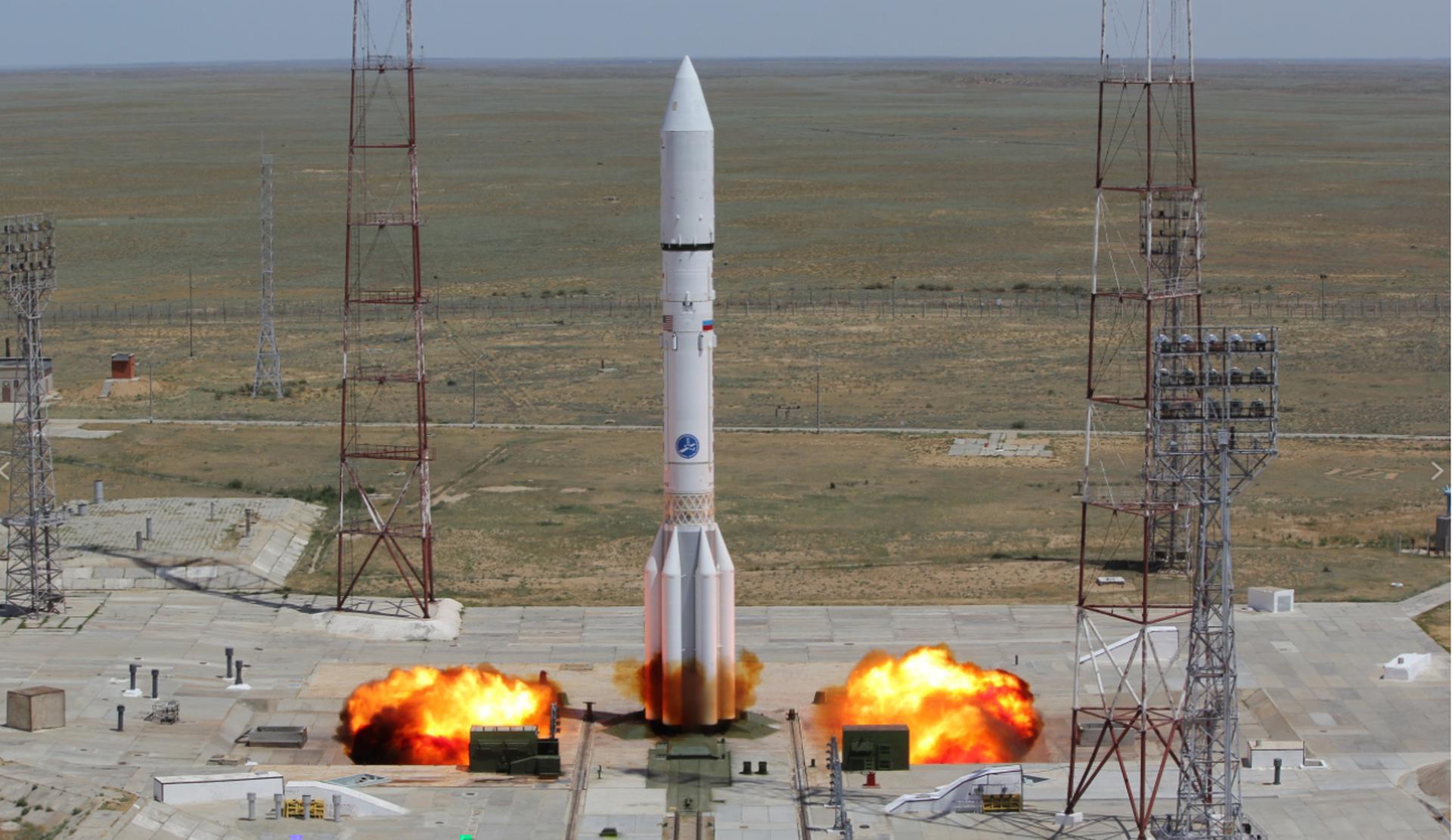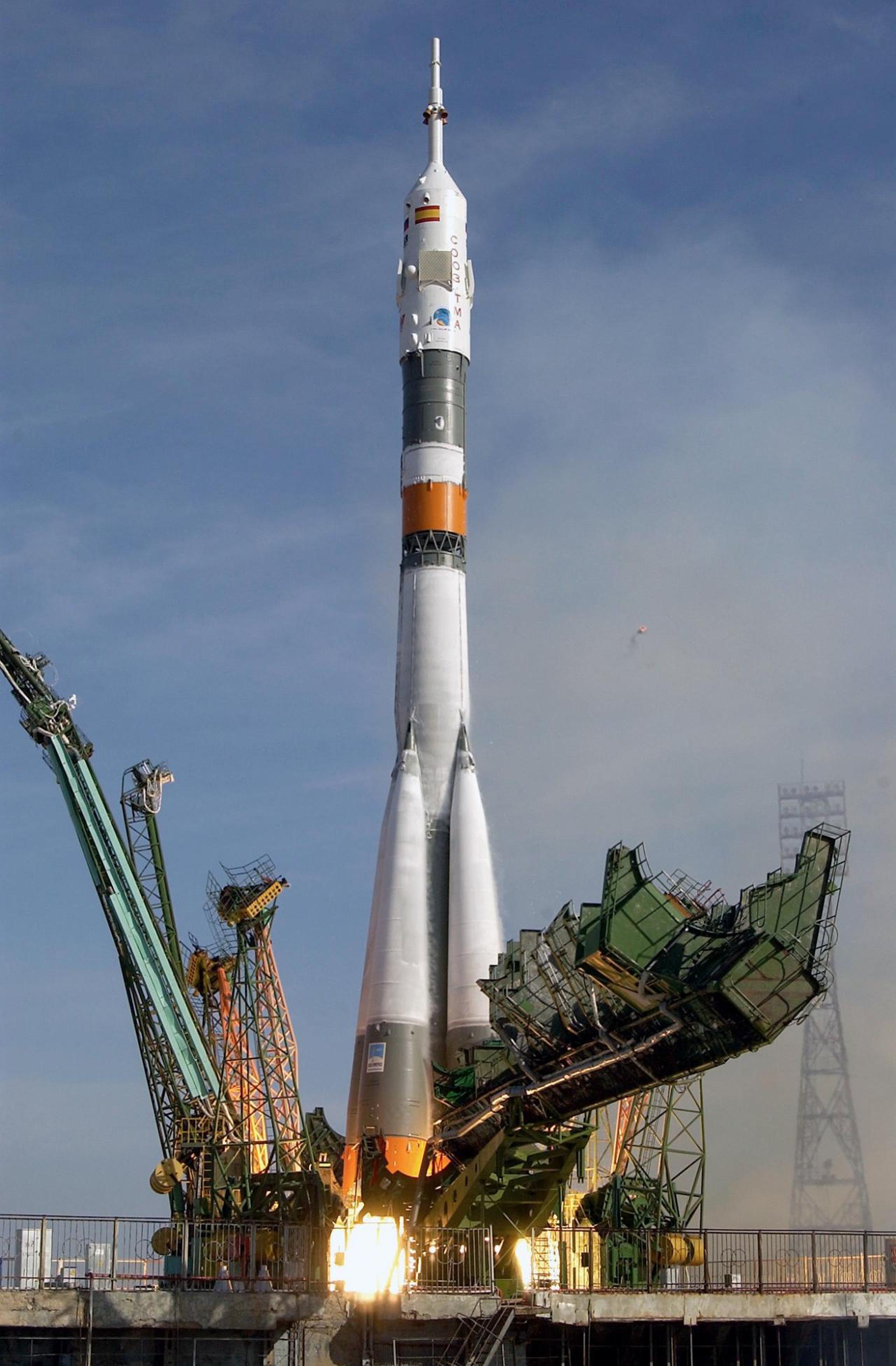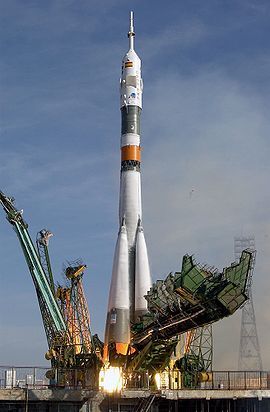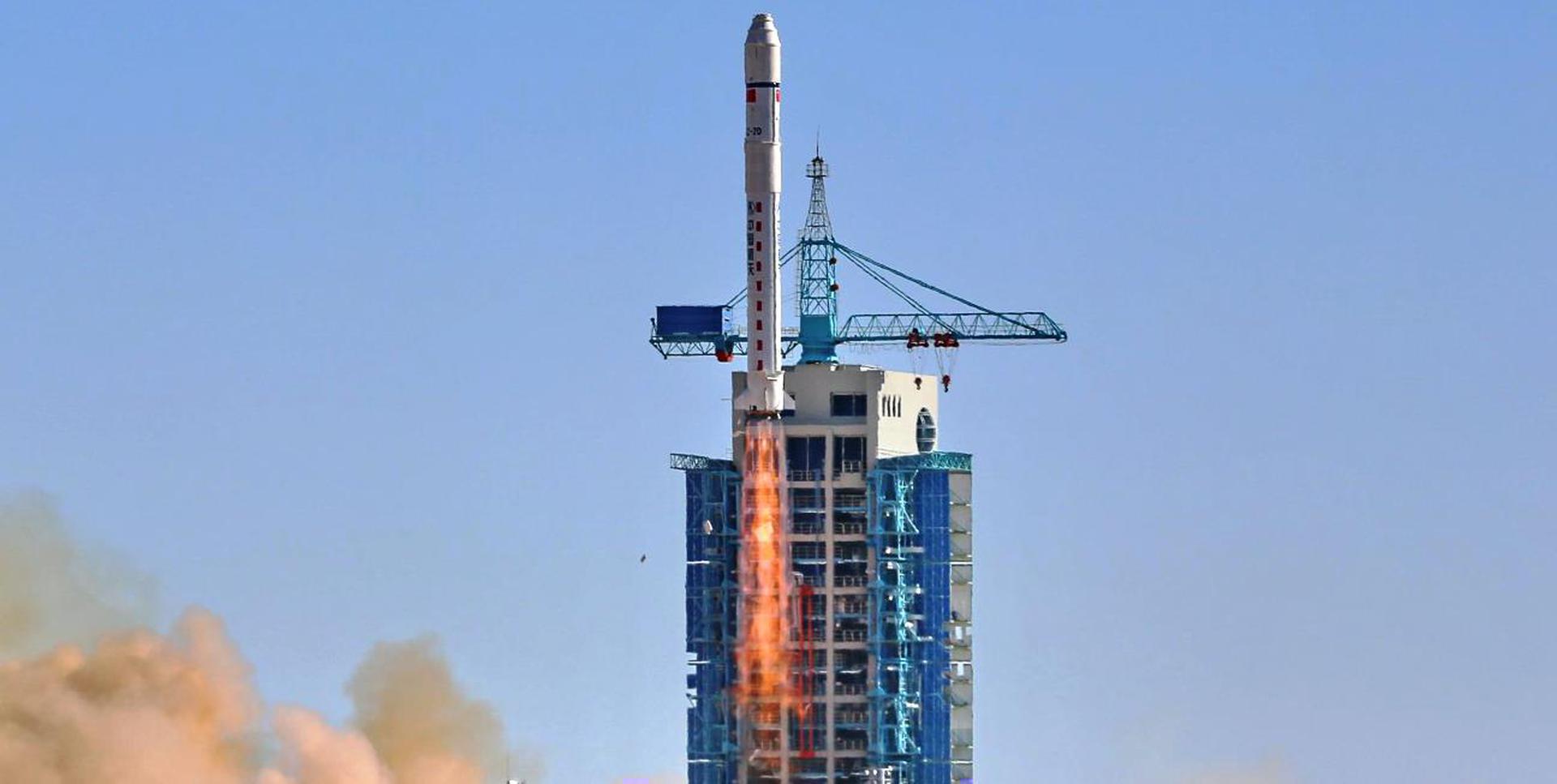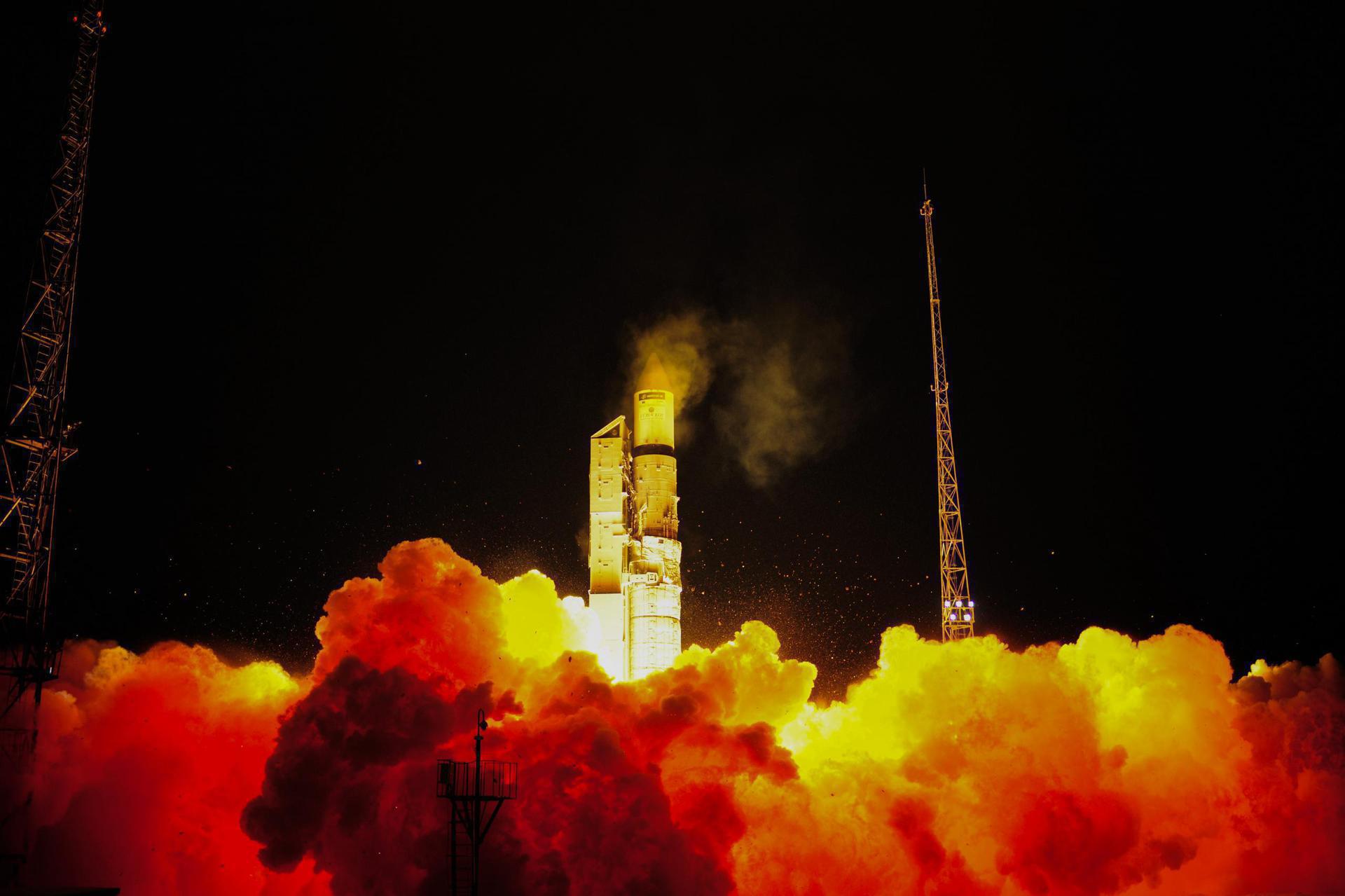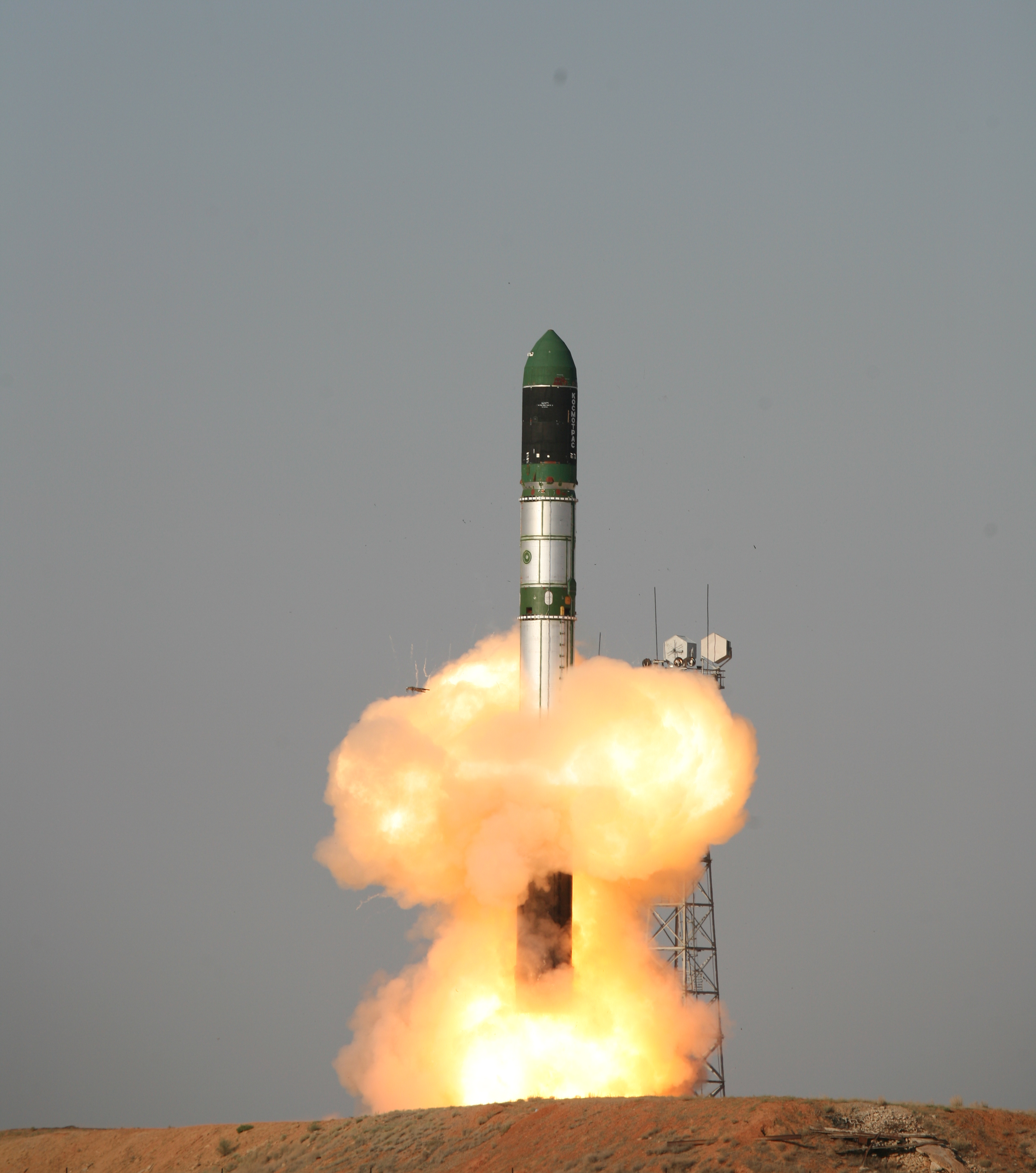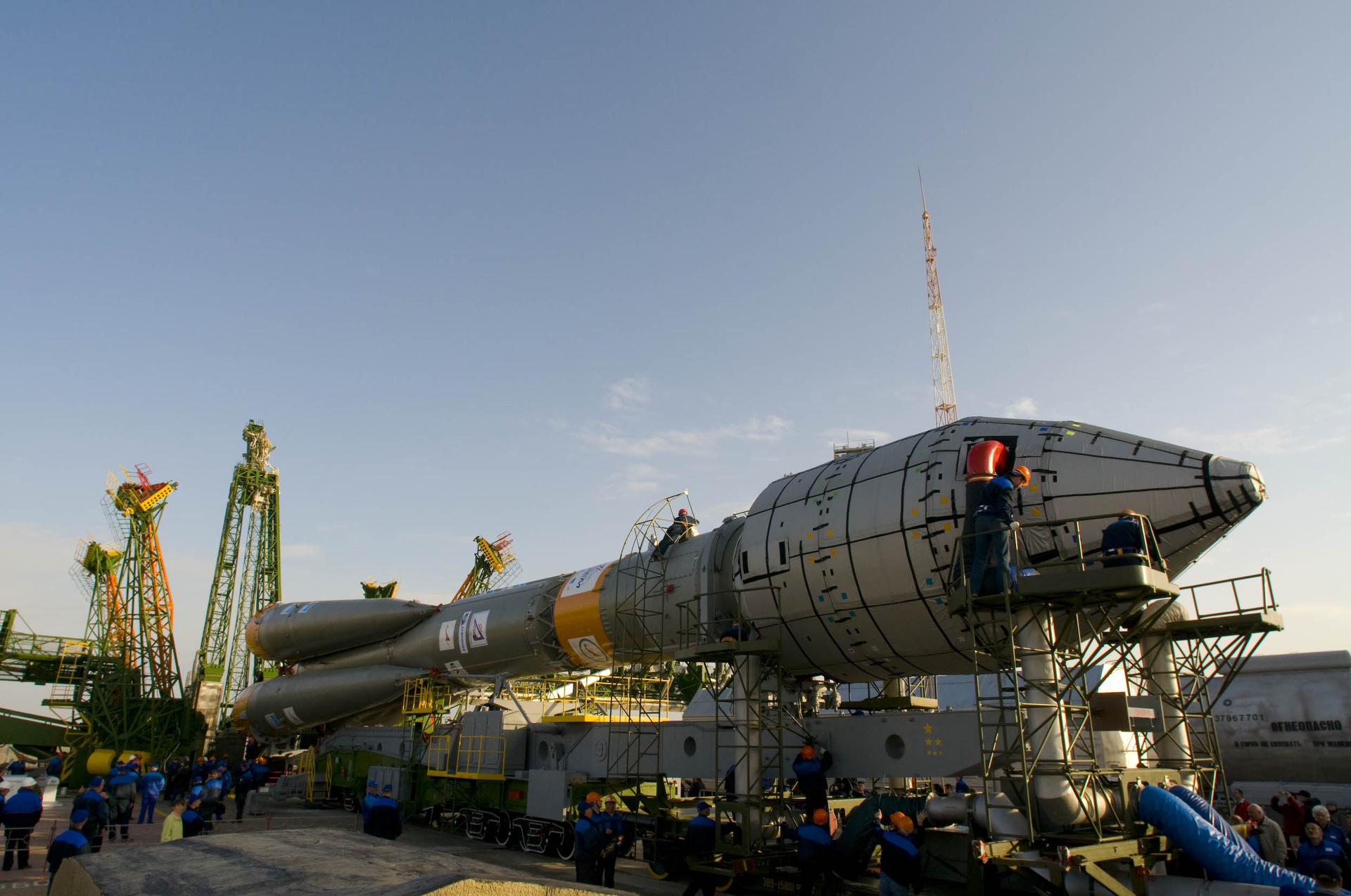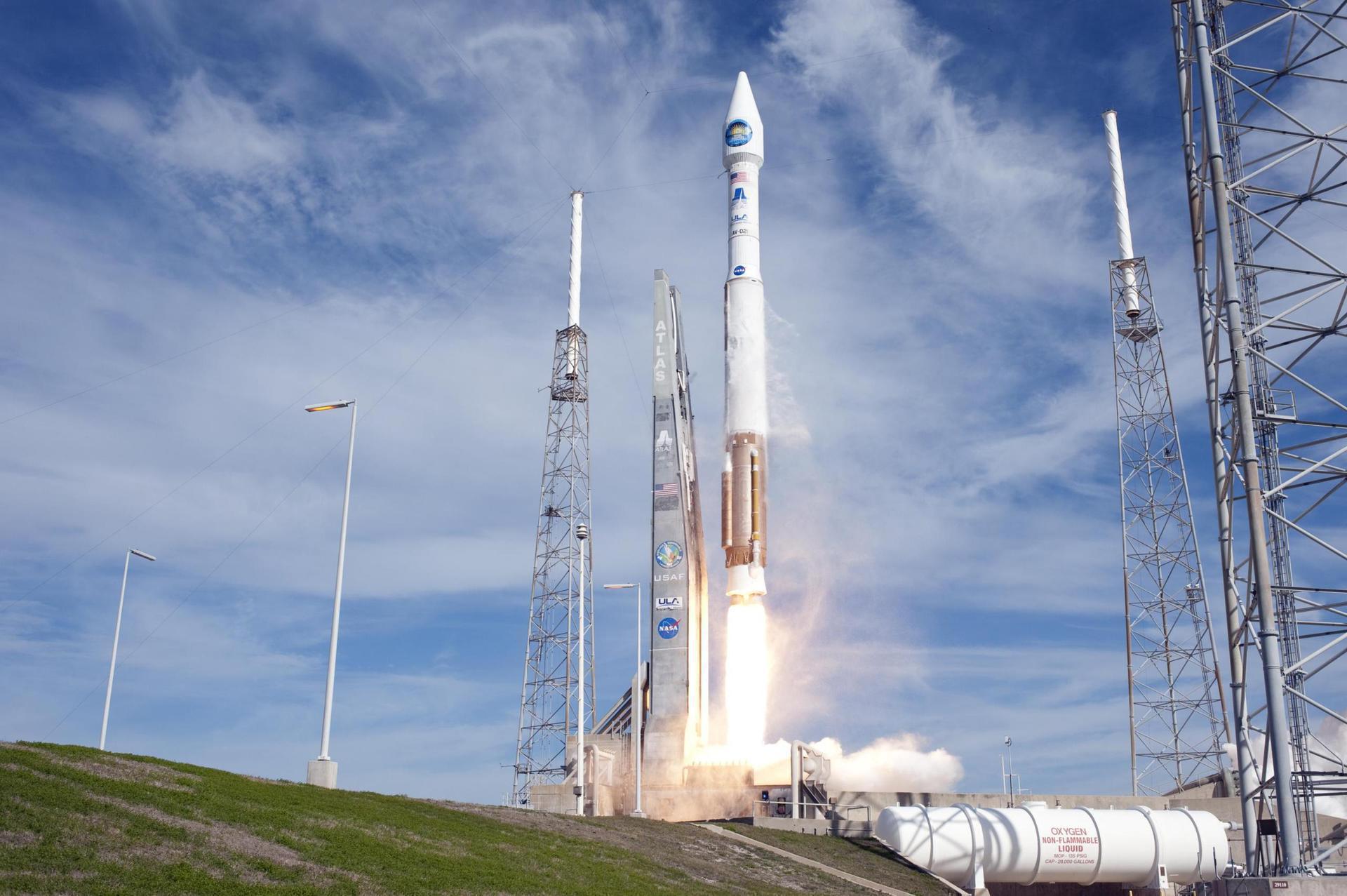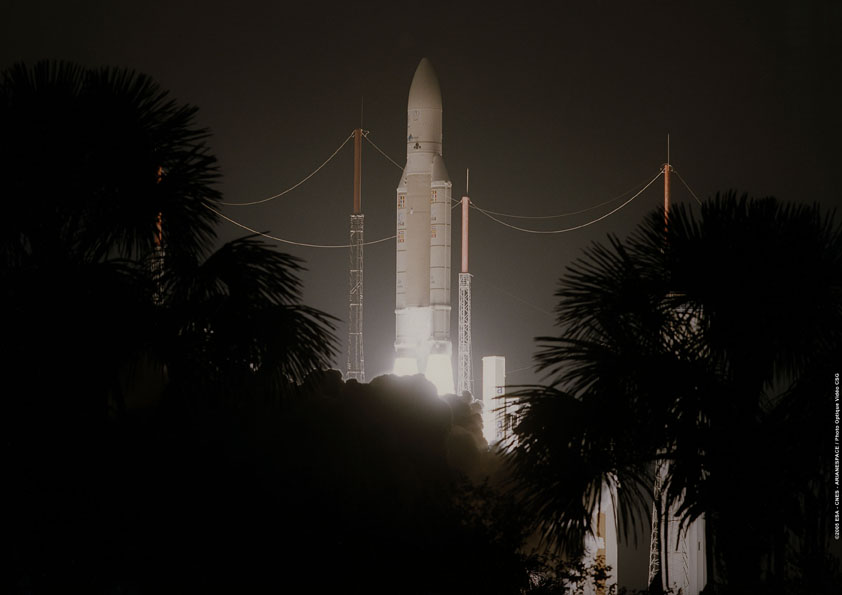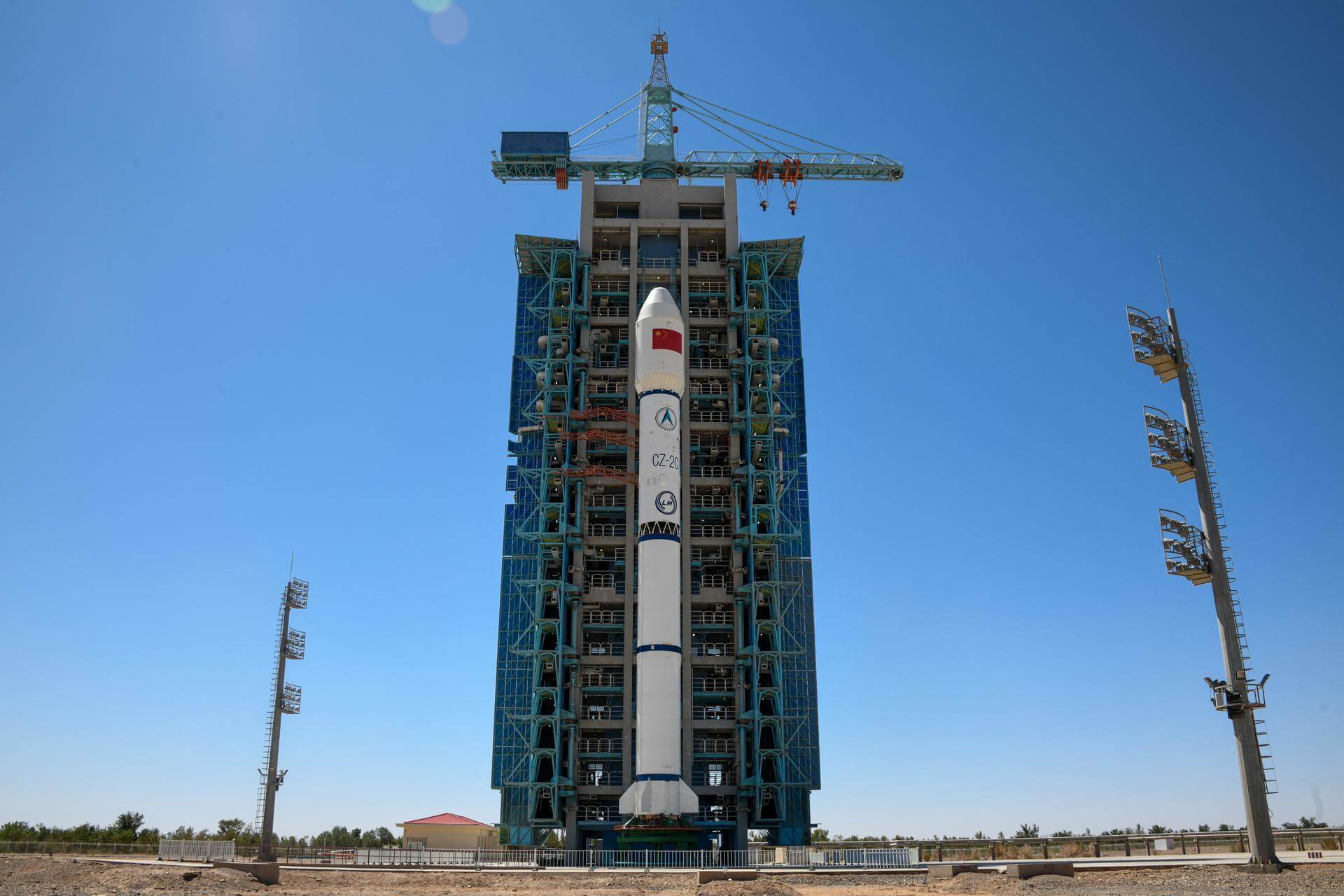Previous Spaceflight Launches
Filter by Agency, Locations or Vehicles
Show All LaunchesProton-M Briz-M | Anik F1R
Khrunichev State Research and Production Space Center | RussiaBaikonur Cosmodrome, Republic of Kazakhstan
Sept. 8, 2005, 9:53 p.m.
Status: Launch Successful
Mission:
It carried a 24 C-band and 32 Ku-band transponders. Anik F1R has a design life of 15 years. In addition, a Wide Area Augmentation System (WAAS-GEO 4) navigation package operating in C-band for uplink and L-band for downlink provides precision Global Positioning System-based guidance information to aircraft.
Geostationary OrbitSoyuz U | Progress M-54
Russian Federal Space Agency (ROSCOSMOS) | RussiaBaikonur Cosmodrome, Republic of Kazakhstan
Sept. 8, 2005, 1:07 p.m.
Soyuz-U-PVB | Yantar-1KFT 21
Progress Rocket Space Center | RussiaBaikonur Cosmodrome, Republic of Kazakhstan
Sept. 2, 2005, 9:50 a.m.
Long March 2D | Fanhui Shi Weixing (22)
China Aerospace Science and Technology Corporation | ChinaJiuquan Satellite Launch Center, People's Republic of China
Aug. 29, 2005, 8:45 a.m.
Rokot / Briz-KM | Monitor-E No. 1
Russian Aerospace Defence Forces | RussiaPlesetsk Cosmodrome, Russian Federation
Aug. 26, 2005, 6:34 p.m.
Status: Launch Successful
Mission:
Monitor-E had a set of remote sensing devices. They were intended to make maps of the Earth's surface to be used for ecological monitoring and charting geological features. It was built by the Khrunichev State Research and Production Space Center.
Sun-Synchronous OrbitDnepr | Kirari
ISC Kosmotras | RussiaBaikonur Cosmodrome, Republic of Kazakhstan
Aug. 23, 2005, 9:09 p.m.
Soyuz-FG | Galaxy 14
Progress Rocket Space Center | RussiaBaikonur Cosmodrome, Republic of Kazakhstan
Aug. 13, 2005, 11:28 p.m.
Atlas V 401 | Mars Reconnaissance Orbiter
United Launch Alliance | United States of AmericaCape Canaveral SFS, FL, USA
Aug. 12, 2005, 11:43 a.m.
Status: Launch Successful
Mission:
Mars Reconnaissance Orbiter (MRO) is a spacecraft designed to study the geology and climate of Mars, provide reconnaissance of future landing sites, and relay data from surface missions back to Earth. It was launched on August 12, 2005 and reached Mars on March 10, 2006. In November 2006, after five months of aerobraking, it entered its final science orbit and began its primary science phase.
Mars OrbitAriane 5 GS | Thaicom 4
ArianeGroup | FranceGuiana Space Centre, French Guiana
Aug. 11, 2005, 8:20 a.m.
Long March 2C | Fanhui Shi Weixing (21)
China Aerospace Science and Technology Corporation | ChinaJiuquan Satellite Launch Center, People's Republic of China
Aug. 2, 2005, 7:30 a.m.
